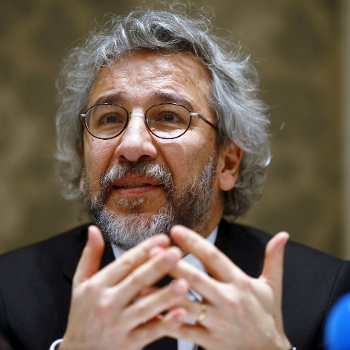
- This event has passed.

Can Dündar (Özgür Gündem)
May 21, 2020
Defendants: Can Dündar
Media Outlet and Position: Özgür Gündem – “Editors-in-Chief on Watch” campaign
Accusations: Making terrorist propaganda; Publishing materials of a terrorist organization
Possible sentences: –
Court: İstanbul 22. High Criminal Court
Case Background:
Can Dündar, former editor-in-chief of Cumhuriyet newspaper, is being tried for his participation in the solidarity campaign “Editors-in-Chief on Watch”, for the pro-Kurdish newspaper Özgür Gündem.
A number of editors, journalists and columnists for the now-shuttered Özgür Gündem newspaper were brought before the court on accusations of “overtly inciting a crime” and “producing terrorist propaganda” for the daily’s articles and reports.
Dündar presently lives in Germany, having fled the country after a gunman attacked him in front of the Çağlayan Courthouse, in İstanbul. Dündar was not injured in the incident.
During a hearing on September 4, 2018, the court requested the execution of Dündar’s arrest warrant in an interim decision and adjourned the trial until January 31, 2019.
On January 31, 2019, the court ruled to grant additional time for missing documents to be included, as well as for an answer from a rogatory court to arrive. During the most recent hearing on July 18, 2019, the court ruled to wait for the execution of the arrest warrant for Dündar and adjourned the trial until November 28, 2019.
During the hearing on November 28, 2019, the court decided to wait for the execution of the arrest warrant against Dündar and for the response to the documents sent for Dündar to Germany.
The next hearing was adjourned until May 21, 2020.
Dündar also faces charges of “obtaining secret documents for espionage” and “aiding a terrorist organization whilst not being a member” in separate cases after Cumhuriyet reported that trucks belonging to Turkey’s National Intelligence Service (MİT) allegedly carried weaponry across the border to Syria.
Previously, a court sentenced Dündar to five years and 10 months in prison on the charges of “obtaining and revealing secret documents for espionage”, while ordering sentencing on the charge of “aiding a terrorist organization whilst not being a member” to proceed separately.
